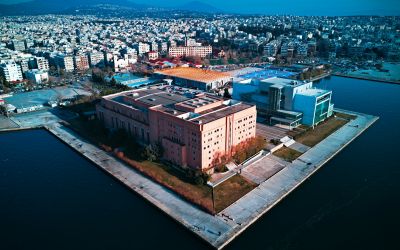Could Africa’s agricultural challenges be solved by satellite data?
There has been a significant growth in the availability of satellite data in recent years, providing access to information on air quality, soil composition, ocean currents, and seismic activity.

There has been a significant growth in the availability of satellite data in recent years, providing access to information on air quality, soil composition, ocean currents, and seismic activity.
Satellite images offer a 3D view of the earth and a close to real time analysis.
Experts argue that sustainable agriculture and food security processes are limited by a lack of information. Satellite data fills this gap while also offering the potential to map deforestation, urbanisation and flooding.
Satellite technologies provide a new solution to the world’s rapidly increasing population and food demands.
Nagaraja Rao Harshadeep, lead environmental specialist and global lead for watersheds at the World Bank commented:
“There’s an opportunity to try and do things in a way we couldn’t even dream of just a few years ago. A real paradigm shift is happening in terms of the kinds of activities that we can support now using a lot of these new technologies."
For agriculture, satellite technology could be critical, farmers and agricultural organisations will be able to make informed decisions based on historic patterns and a better understanding of present day issues.
A new satellite technology has been launched today that harnesses the latest earth observation and satellite technology to help Kenya, Senegal, Sierra Leone, Ghana and Tanzania address food security, agriculture issues, deforestation and water access.
The ‘African Regional Data Cube’ was developed by the Committee on Earth Observation Satellite (CEOS) alongside the Group on Earth Observations, Amazon Web Services and Strathmore University in Kenya.
The Deputy President of Kenya, H.E William Ruto said Kenya will use the data cube to inform food security processes, a pillar of its 'Big Four' priorities alongside manufacturing, healthcare and affordable housing.
Thanks to the data cube, the government will gain a better understanding of crop distribution, seasonality and use of agricultural land in rural areas.
H.E William Ruto added:
"This technology will help us understand month by month how our land is being used so that we can target interventions aimed at improving our actions against climate change, help smallholder farmers and secure sustainable food and water for our citizens".
Although satellite data has existed for many years, the recent growth in its availability and ease of use has provided governments with a new tool to meet key development challenges.
Vast quantities of freely available satellite data offers a key opportunity to improve agricultural production, food security and access to water.
Our sister community, Aid & International Development Forum, is hosting its inaugural Africa Climate Smart Agriculture Summit on 15-16th May 2018 in Nairobi, Kenya. The summit will discuss innovations and challenges in Climate Smart Agriculture practices, increasing cross industry collaboration and financial investment for Climate Smart Agriculture and more.
Know an innovative project that hopes to establish or further Climate Smart Agriculture initiatives? Nominate it for our CSA Project of the Year Award.






